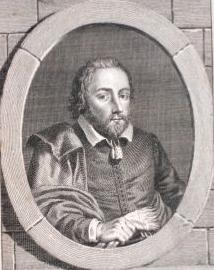“He that would govern others, first should be the master of himself.”
The Bondman (1623), Act I, scene iii http://books.google.com/books?id=K0cNAQAAMAAJ&q=%22He+that+would+govern+others+first+should+be+the+master+of+himself%22&pg=PA193#v=onepage.
Филипп Мэссинджер — английский драматург — один из непосредственных преемников Шекспира.

“He that would govern others, first should be the master of himself.”
The Bondman (1623), Act I, scene iii http://books.google.com/books?id=K0cNAQAAMAAJ&q=%22He+that+would+govern+others+first+should+be+the+master+of+himself%22&pg=PA193#v=onepage.
“This many-headed monster,
The giddy multitude.”
The Roman Actor (1626), Act iii. Sc. 2. Compare: "Many-headed multitude", Sir Philip Sidney, Defence of Poesy, Book ii; "Many-headed multitude", William Shakespeare, Coriolanus, act ii, scene 3; "This many-headed monster, Multitude", Daniel, History of the Civil War, book ii, st. 13.
“The good needs fear no law,
It is his safety and the bad man's awe.”
The Old Law (c. 1615–18; printed 1656), with Thomas Middleton and William Rowley.
A New Way to Pay Old Debts (1625), act i. sc. 3. See X me no X's.
A New Way to pay Old Debts (1625), Act v. Sc. 1. Compare: "From thousands of our undone widows / One may derive some wit", Thomas Middleton, A Trick to catch the Old One (1605), Act i, Scene 2.
Duke of Milan (1623), Act I, scene iii.
“Virtue, if not in action, is a vice,
And, when we move not forward, we go backward.”
The Maid of Honour (c. 1621; printed 1632), Act I, scene i.
“What a sea
Of melting ice I walk on!”
The Maid of Honour (c. 1621; printed 1632), Act III, scene iii.
“Death hath a thousand doors to let out life.”
A Very Woman (1619), Act v. Sc. 4. Compare: "Death hath so many doors to let out life", Beaumont and Fletcher, The Custom of the Country, act ii. sc. 2; "The thousand doors that lead to death", Sir Thomas Browne, Religio Medici, part i, sect. xliv.
“The oath in any way or form you please,
I stand resolv'd to take it.”
Duke of Milan (1623), Act I, scene iii.
Virgin Martyr (1622), Act IV, scene i.
Great Duke of Florence (1627), Act I, scene 1.
“Like a rough orator, that brings more truth
Than rhetoric, to make good his accusation.”
Great Duke of Florence (1627).